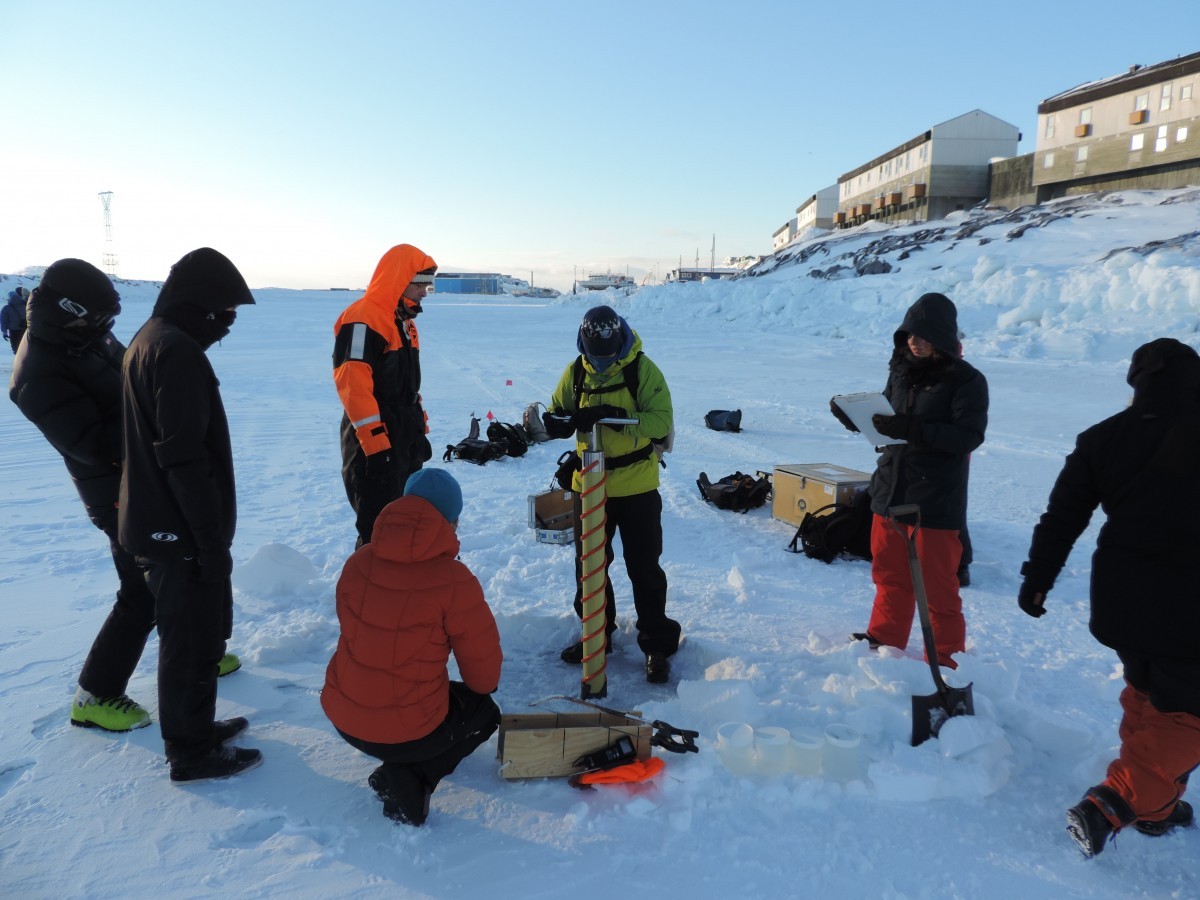
An example of experiential learning. A student in the field school coring the sea ice, while other students record basic measurements of the sea ice. Photo Credit: Nix-Xavier Geilfus.
Connect to your future through experiential learning
How experiential learning supports student learning
The University of Manitoba is a place for learning. Here you learn from books, lectures, classroom discussions and labs–all part of your educational journey, but not necessarily the whole story.
Experiential Learning (EL) is all about you; about the skills you are looking to build, and ways to develop those skills and competencies. It allows you to gain experience and learn by doing. EL can happen inside a classroom, as a part of a course experience, or it can be something that you seek out outside of their coursework. Experiential Learning that happens outside your classes takes place in the workplace, on the land, and in community settings. Reflection is a big part of EL. When you reflect on your experience, you can better connect your learning to real world situations.
At UM, there are twelve types of experiential learning that are recognized and demonstrate our commitment to the education of the whole student.
Participation in EL can also be reflected on your Experience Record, a tool intended to support and document your experience and educational growth. Some examples of experiential learning at UM include: outside-the-box classroom exercises, student exchanges, hackathons, experiences where students can learn from the land, community programming, faculty offerings, co-ops, work placements and more. All of these experiences take student learning from theoretical to practical, help students make valuable connections to the labour market and ultimately be more desirable to potential employers.
How will experiential learning benefit you?
Experiential learning benefits everyone, no matter the degree type or personal background. Here are some ways in which EL can maximize your development during your degree:
- Engage in interactive work directly related to your field of study and future employment
- Validate the learning from your coursework and its connection to the outside world
- Reflect on the experience and skills developed to make informed decisions about your future
- Diversify your course load, coursework and gain practical skills
- Learn about the occupations available upon graduation from your degree program
- Find out if your program of study is the right fit for your goals
- Discover learning styles and environments that compliment you
- Learn more about yourself and your career preferences
- Boost your resumé and build your employability
- Gain self-confidence and leadership skills
How do you find experiential learning opportunities?
The university offers many resources that can help you find the experiences that are right for you!
Explore the Experience Catalogue and browse hundreds of EL opportunities at UM, from courses and programs to clubs and societies.
Meet with a Peer Involvement Advisor to find out more about experiences open to you, learn how to navigate resources such as UMConnect, the UMSU student club webpage, the Experience Catalogue, and have conversations about what you’re looking for in an opportunity.
Browse the Career Services site for more information and resources on planning your career and future.
Talk to a Career Consultant one-on-one for career planning and finding EL opportunities that align with your goals for the future.
To learn more about experiential learning and how it could impact your degree, visit the Experiential Learning Opportunities for Students page.






